Los Barruecos is a natural protected area located in Tajo-Salor-Almonte, just south of Malpartida de Cáceres and a short drive from the city of Cáceres. A Game of Thrones filming location, it features peculiar granitic formations, artificial lakes, a large colony of white storks, walking routes, and a contemporary art museum.
This article includes a general overview and practical information to help you organise and make the most out of a day trip to Los Barruecos.
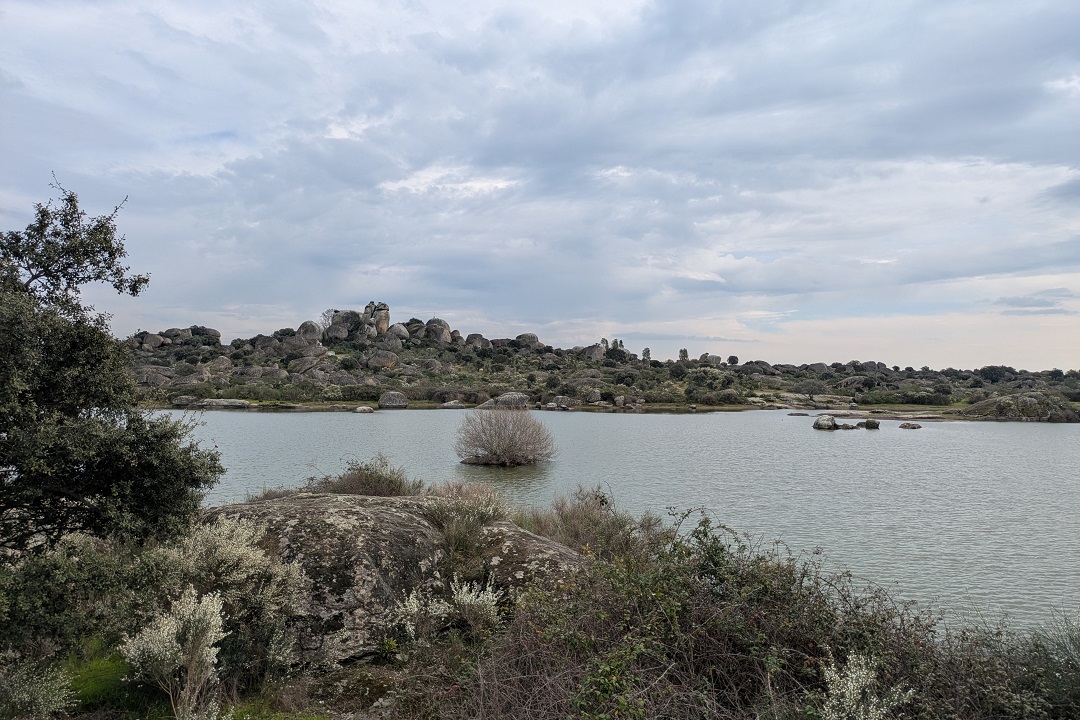
Table of contents
About Natural Monuments
The term Monumentos Naturales refers to one of five types of natural sites or elements protected under Spanish law. A Monumento Natural is a unique, peculiar, or exceptionally beautiful natural site or element. The definition also covers protected trees of special interest, geological formations, paleontological or mineralogical sites and other elements of outstanding scientific, cultural or scenic value. Extremadura has six Natural Monuments.
About Los Barruecos
Los Barruecos is a protected area in central Cáceres province which was awarded Monumento Natural status in 1996. Located south of Malpartida de Cáceres, it features peculiar granitic formations, three artificial lakes, a large colony of white storks, several walking routes, and an interesting contemporary art museum.
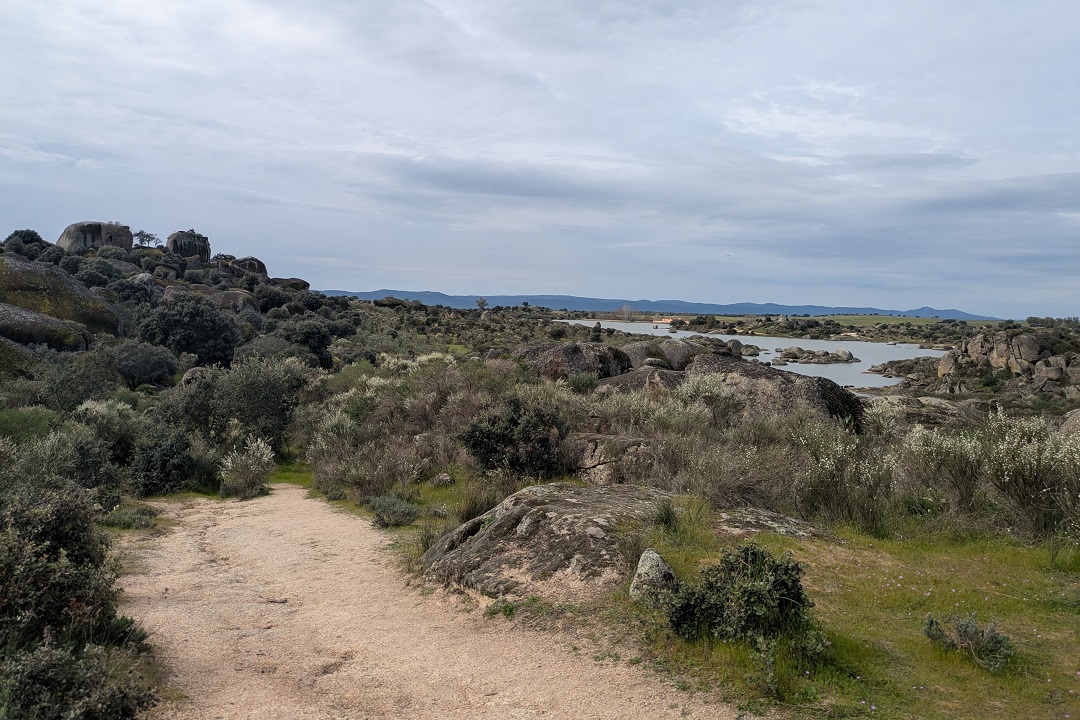
Visiting Los Barruecos
Los Barruecos is reachable by car from Malpartida de Plasencia. It is a family-friendly place offering walking routes taking from thirty minutes to over three hours. The so-called Ruta de los Sentidos is a 1.5-kilometre accessible route.
The staff at the on-site Visitor Centre can offer advice and maps on arrival.
Practical info
Visitor Centre (Centro de Interpretación del Monumento Natural Los Barruecos)
Phone: (+34) 927 27 67 23
Email: [email protected]
Tourist Information Centre (Oficina de Turismo)
Location: Calle Santa María, 4, Malpartida de Cáceres
Email: [email protected]
Location of Los Barruecos and how to get there
Monumento Natural Los Barruecos is located within the Tajo-Salor-Almonte area of Cáceres province, just south of Malpartida de Cáceres. Los Barruecos is just over twenty-five minutes away by car from Cáceres and it is also one of my recommended day trips from Trujillo, which is about fifty minutes away by car.
How to get to Los Barruecos
The main point of reference is the N-521 road running through Malpartida de Plasencia from west to east (you’ll be driving on this road, if you’re coming from Cáceres or Trujillo).
Both Los Barruecos Natural Monument and the Vostell Museum are well signposted on the N-521 road. Get off onto Calle Almirez and keep following the signs for Los Barruecos or the Vostell Museum, which will take you out to the outskirts to a country road leading you to the parking area outside the Interpretation Centre.
Los Barruecos: highlights
Granite rocks
This Natural Monument is called after the numerous granitic rocks (barruecos, also called berruecos) formed in the area over thousands of years. The importance of their unique, peculiar shapes has been recognised by geologists the world over.
Most relevant single rocks (called peñas) can be seen around the two main lakes while completing one the walking routes, particularly the dark blue and the green routes.
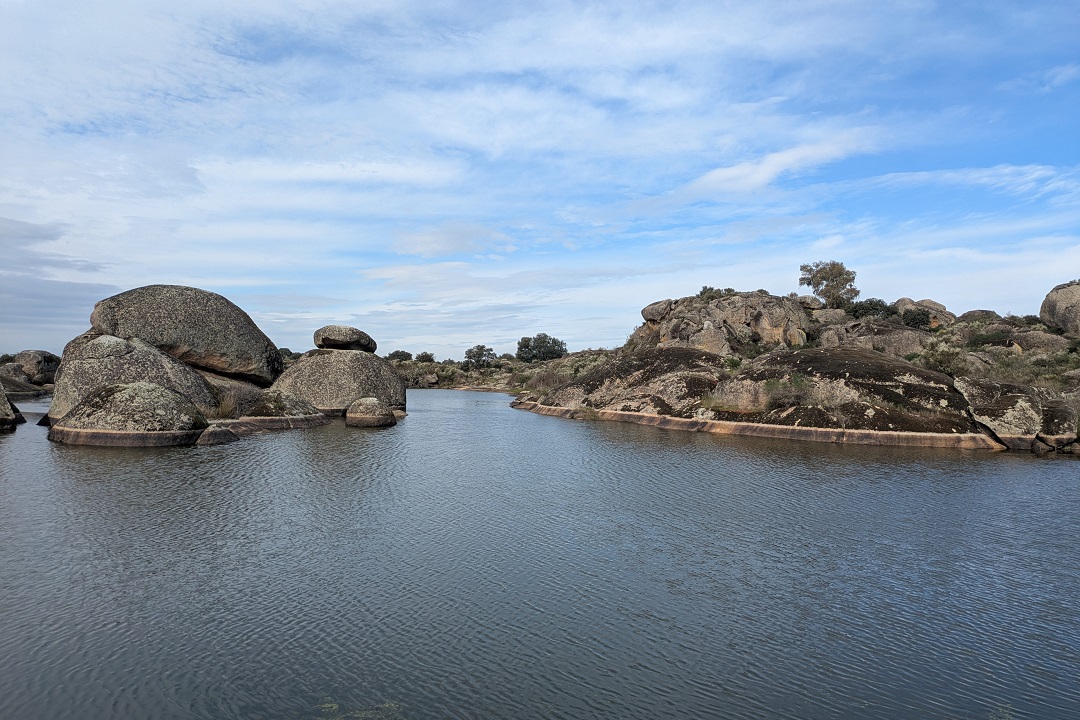
Museo Vostell
Founded in the mid-seventies by German-Spanish artist Wolf Vostell, contemporary art Museo Vostell occupies the site of an eighteenth-century wool washing house. It holds three different collections indoors – the founding artist’s main collection, the Fluxus Collection donated by Italian artist Gino di Maggio, and a conceptual artists’ collection, as well as a little interpretation space about the history of the original buildings. It also comprises several open-air artworks. As you leave the main building, you’ll come across an impressive installation made of parts of a Russian plane, cars and pianos which several storks now call it home. And further out, near granitic rocks, the VOAEX sculpture, mimicking a car about to be swallowed by a concrete block, its inauguration in 1976 officially opening the Vostell Museum.
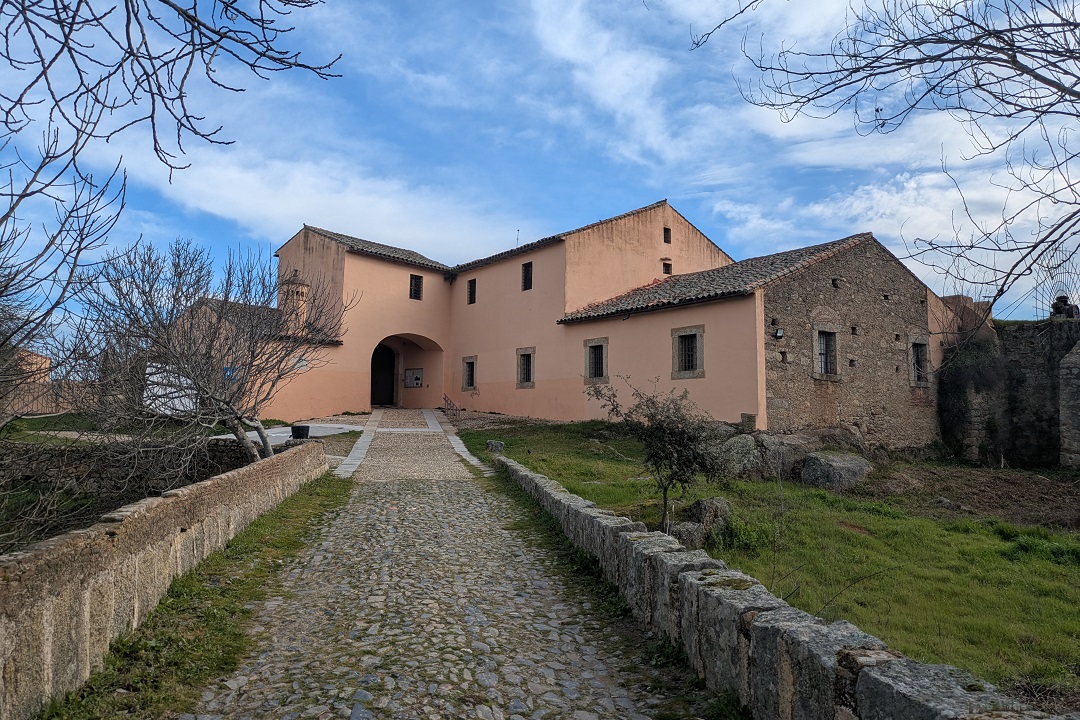
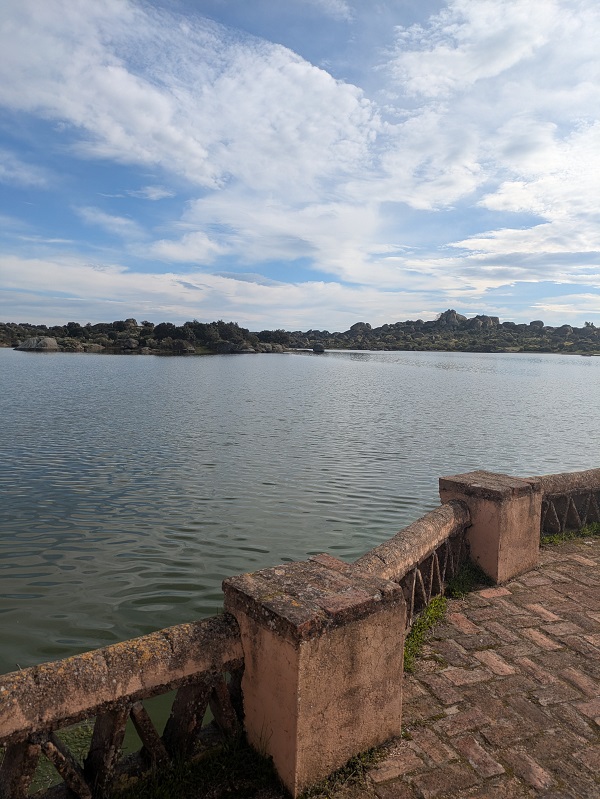
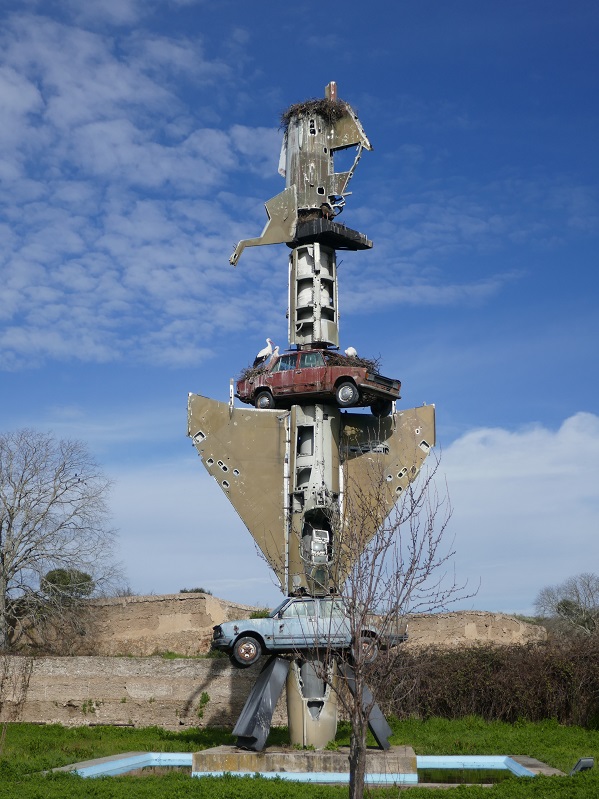
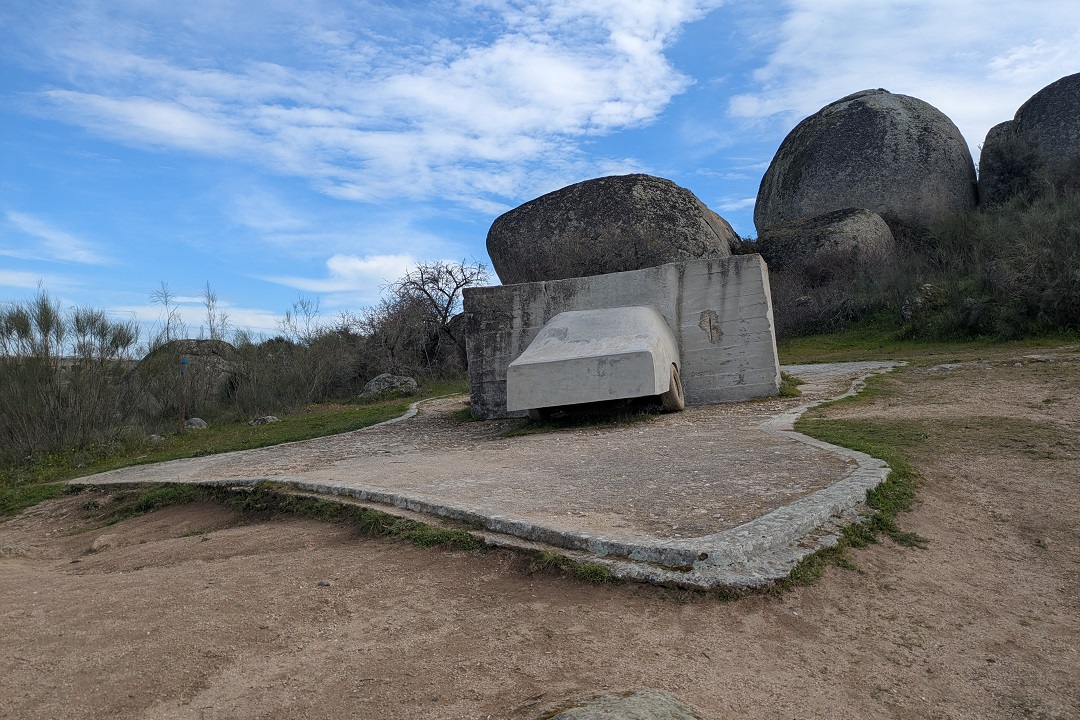
I highly recommend this museum as your first stop in Los Barruecos before choosing one of the available walking routes to discover the Natural Monument to appreciate the museum experience and its relationship with its exceptional natural surroundings.
Practical info
Opening times: (22 March-23 September) from Tuesday to Saturday from 9.30am to 1.30pm, and from 4.30pm to 7.30pm, Sundays from 9.30am to 2.30pm; (24 September-21 March) from Tuesday to Saturday from 9.30am to 1.30pm, and from 4pm to 6.30pm, Sundays from 9.30 to 2.30pm.
Entry fee: €3 (general admission). Card payments are accepted, but the signal is not great and their card reader might now work, so make sure you take cash with you, just in case.
Guided tours: available in Spanish (€30) and English (€40), to be booked in advance online. Tours can be paid online via bank transfer or by card or in cash at the museum. The entry fee to the museum is not included. Free guided tours are organised every other weekend (keep an eye on their social media channels for announcements).
Parking: free parking outside the museum.
Contact details: (phone) (+34) 927 01 08 12; (email) [email protected]; (website) https://museovostell.es/; (Facebook) museovostellmalpartida; (Instagram) @museovostell.
Walks
There are seven walking routes available in Los Barruecos, ranging in length from 1.5 to 7 kilometres, each of them focused on something slightly different. I have completed so far two of them:
1. Dark blue route: a four-kilometre, two-hour circular route to the south of the largest lake (Charca del Barrueco de Abajo). This route focuses on the archaeological and geological heritage, featuring tombs and a good number of the most iconic peñas. I completed this route years ago and the old pictures below don’t really do them justice (I’ll update the pictures next time I complete this route).
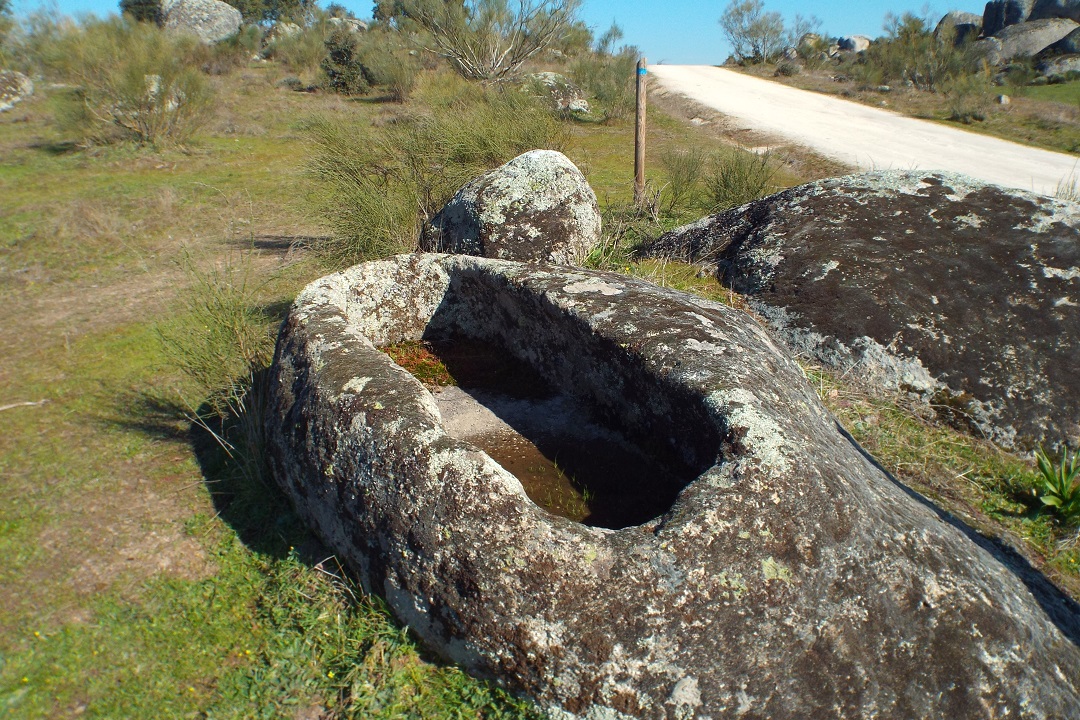
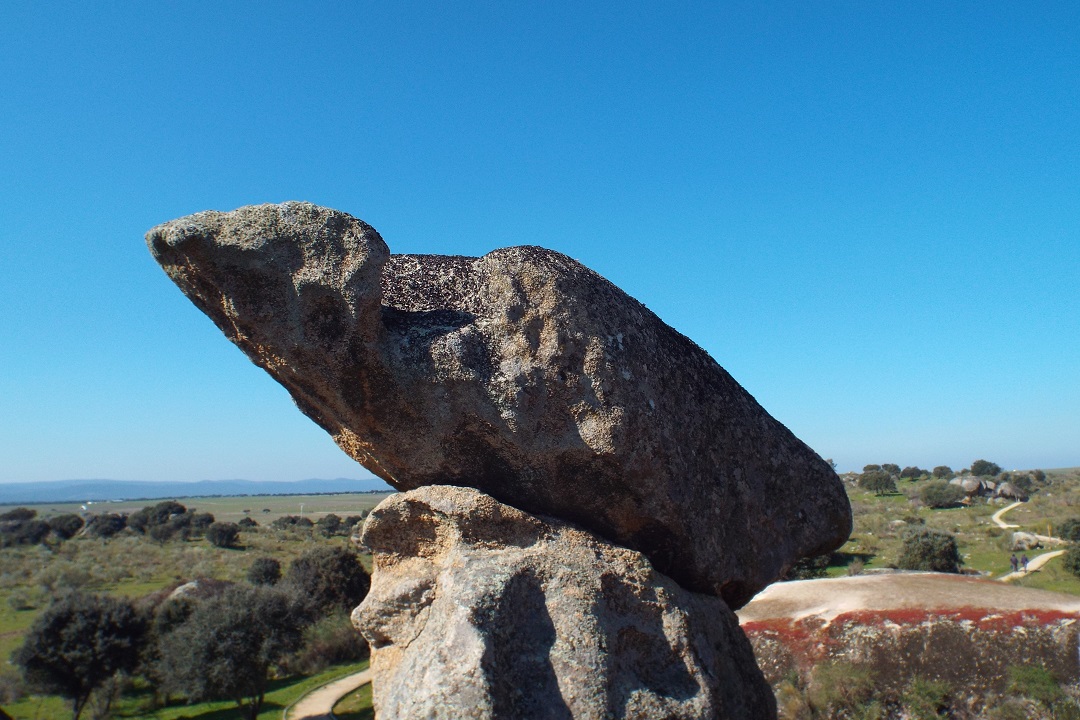
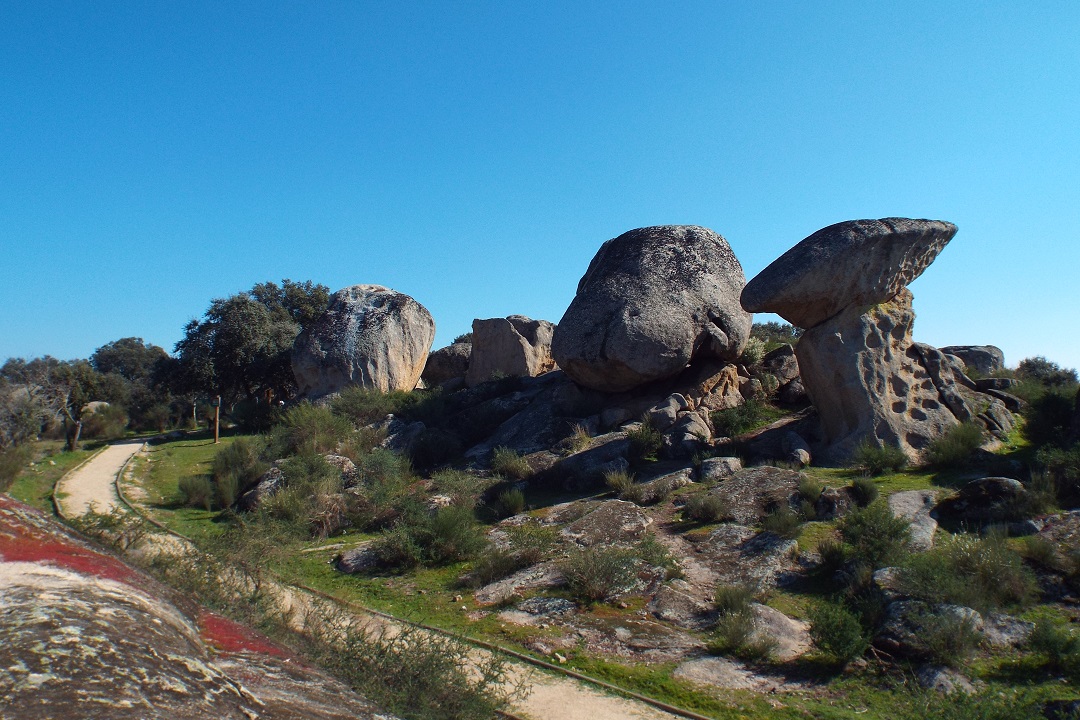
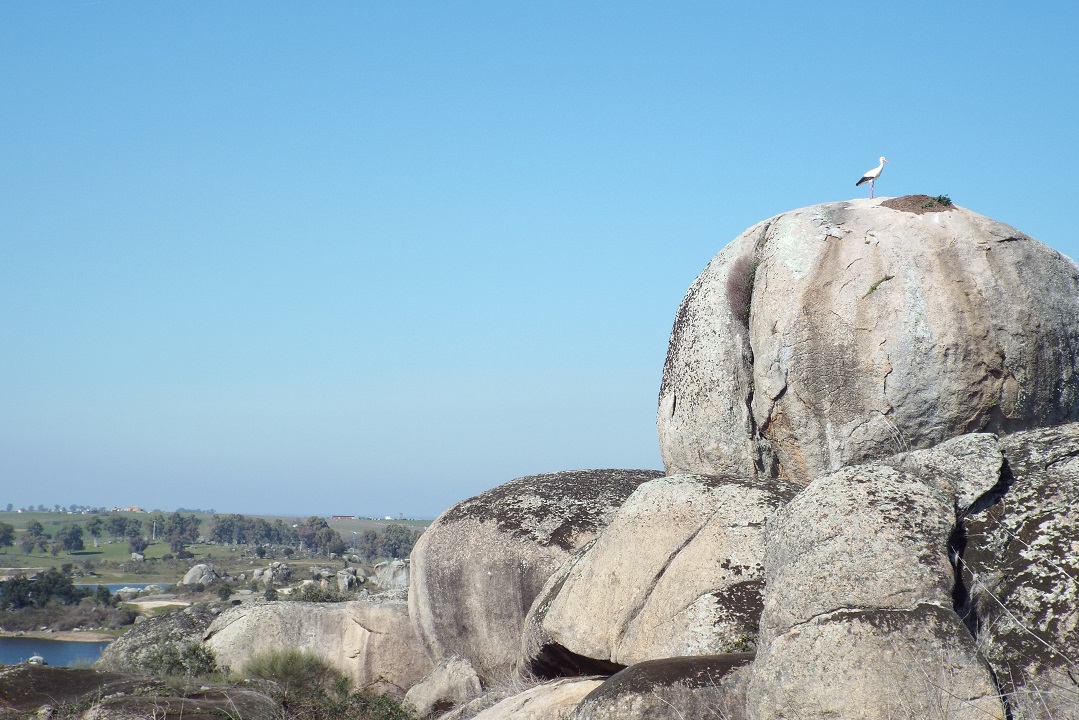
2. Green route: a seven-kilometre, three-hour circular route around the two main lakes, starting at the Visitor Centre (opposite the small Charca del Molinillo lake). The first stretch around the lower lake until the emblematic Peñas del Tesoro rocks, crowned by numerous stork nests, coincides with the dark blue route. After reaching a mill, it goes around the upper lake (Charca del Barrueco de Arriba) past the Game of Thrones filming location, a shepherd’s stone hut (bujío), several rocks (one of them with some cave art), and the VOEX sculpture.
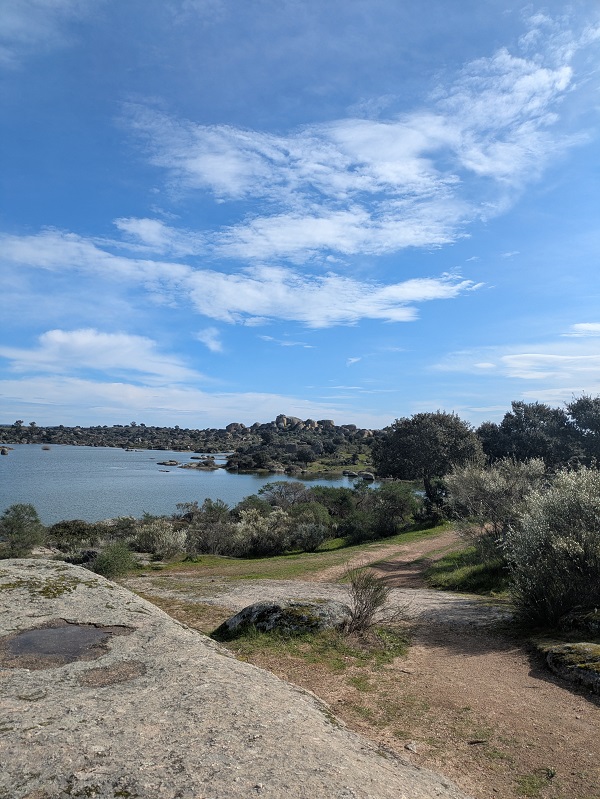
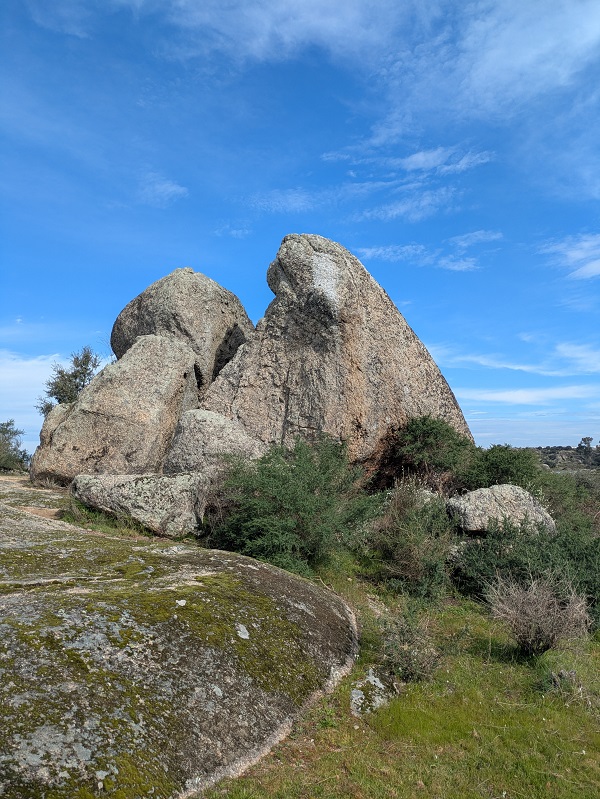
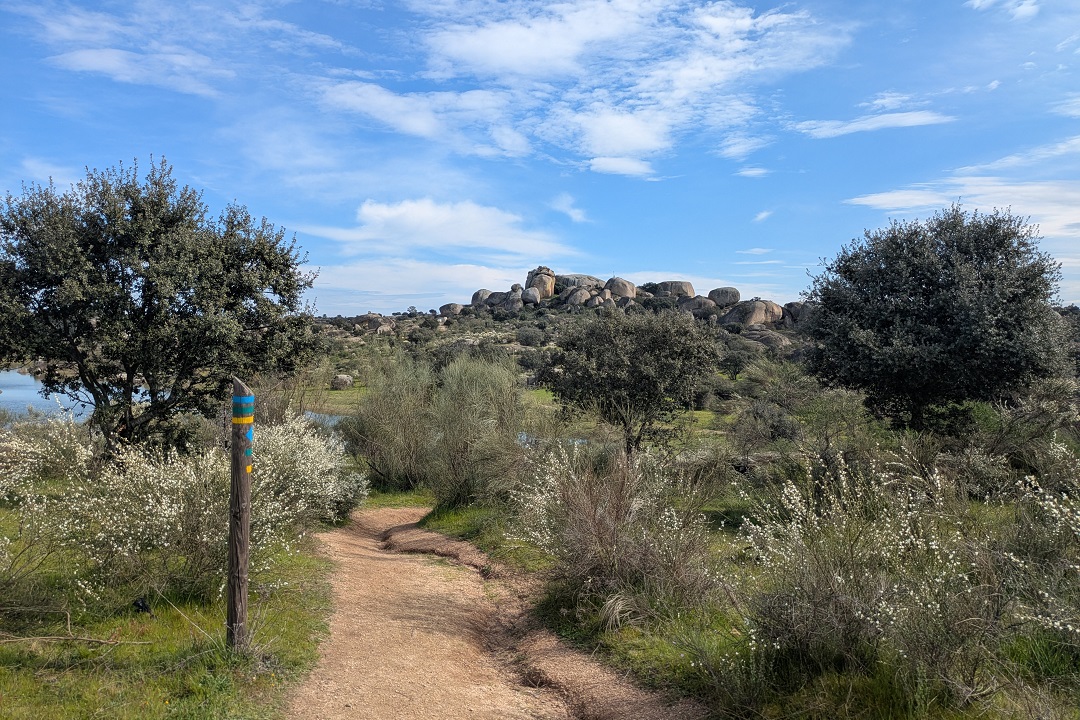
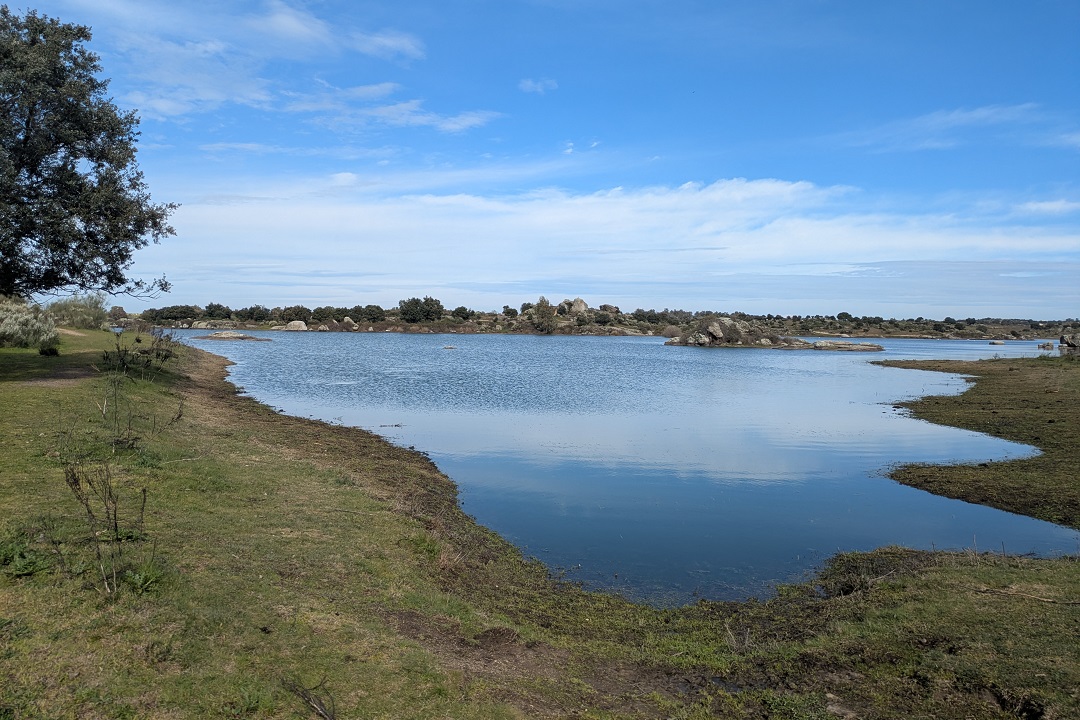
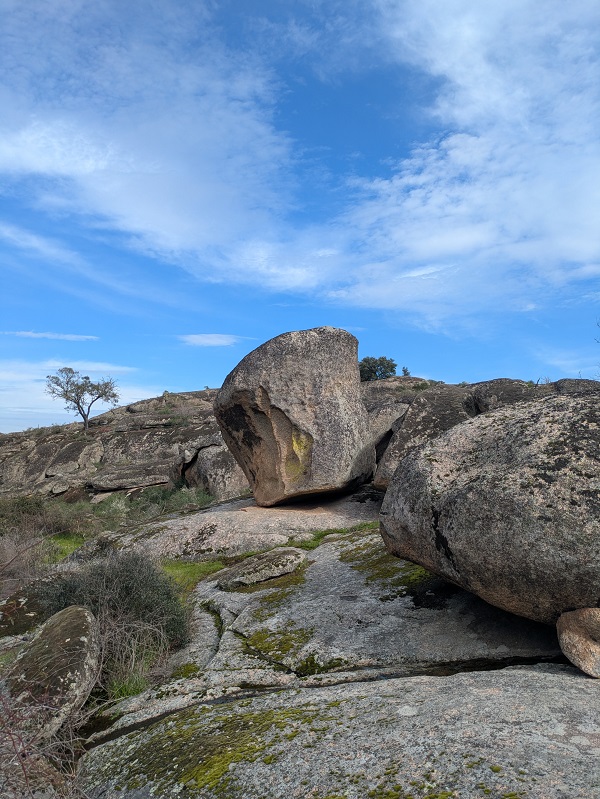
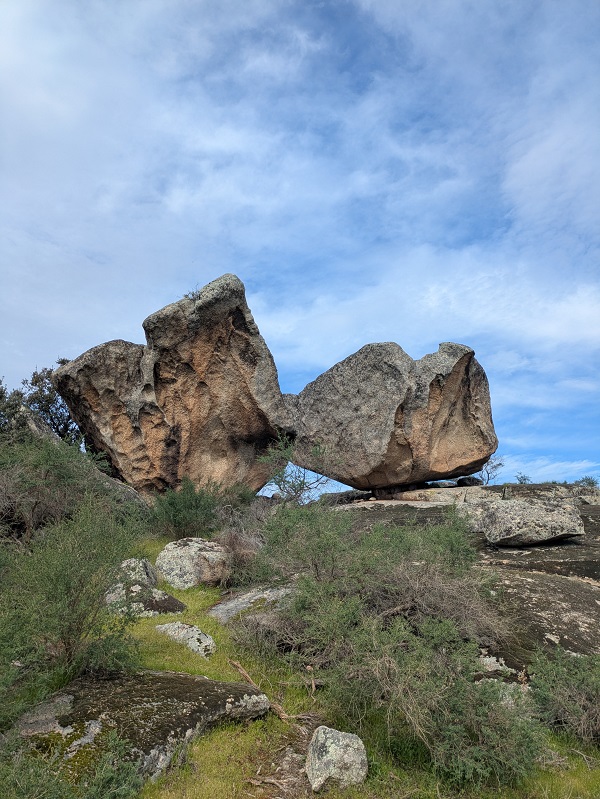
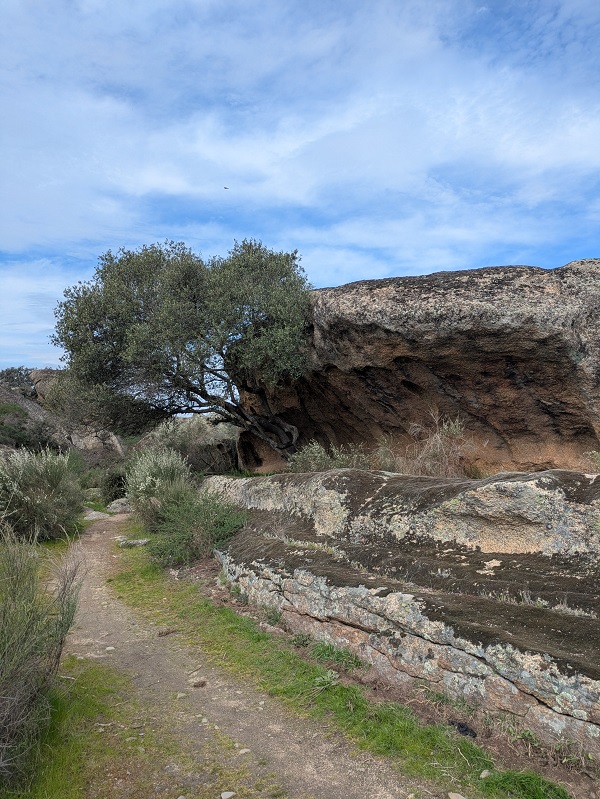
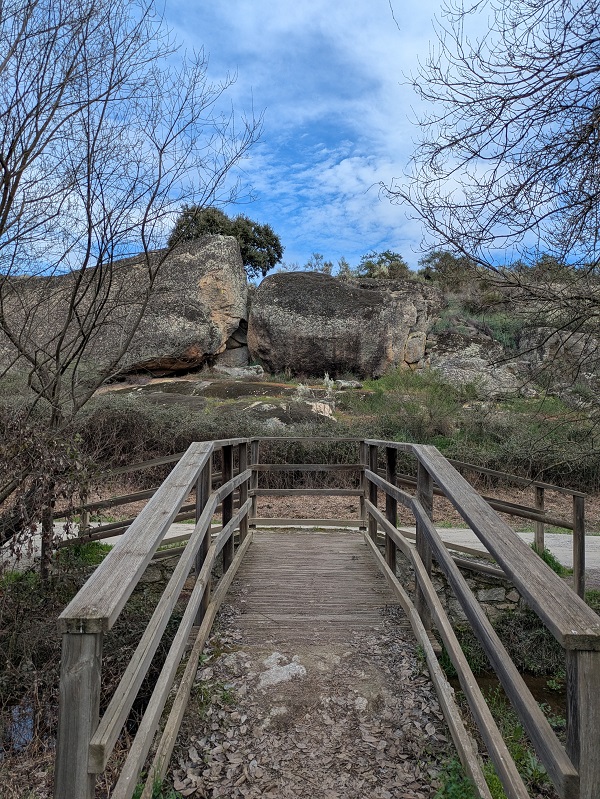
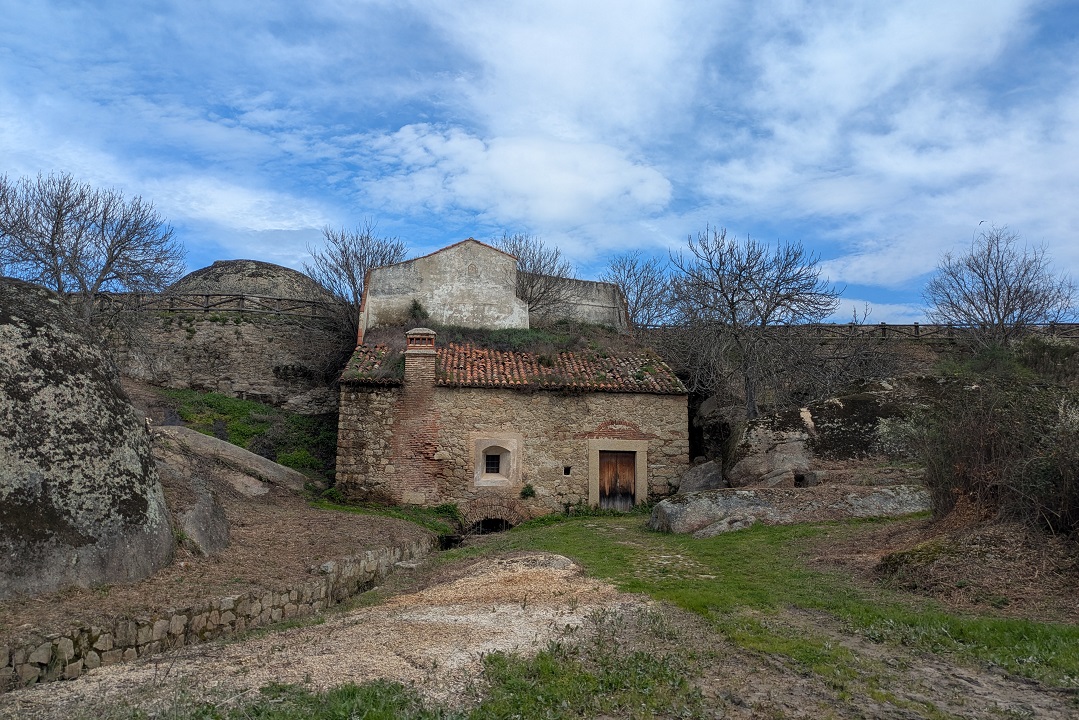
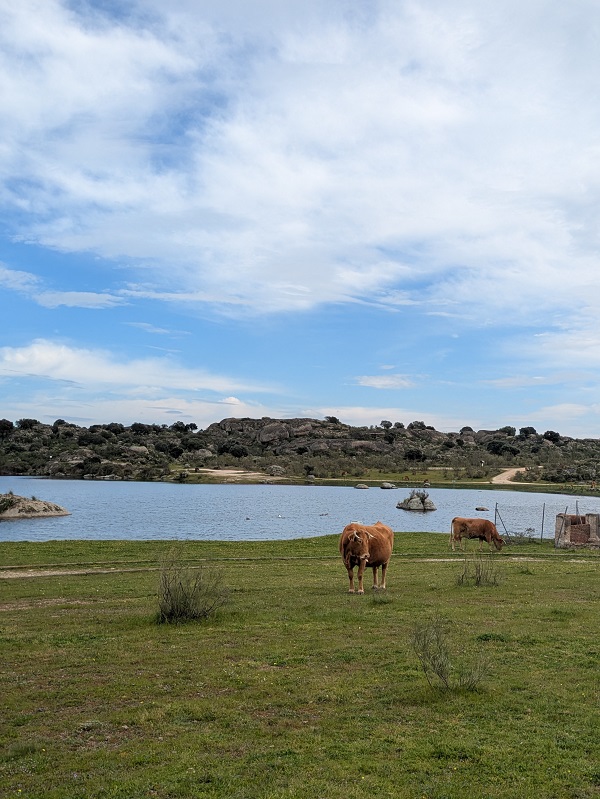
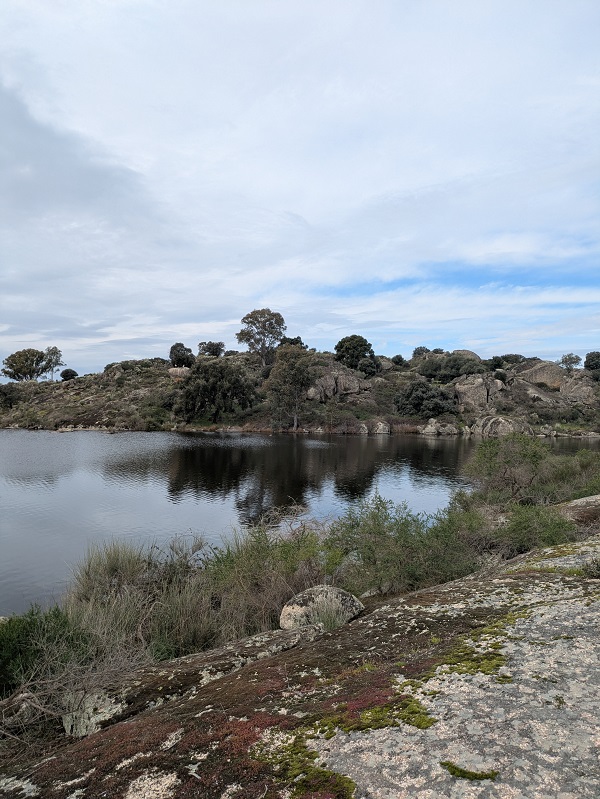
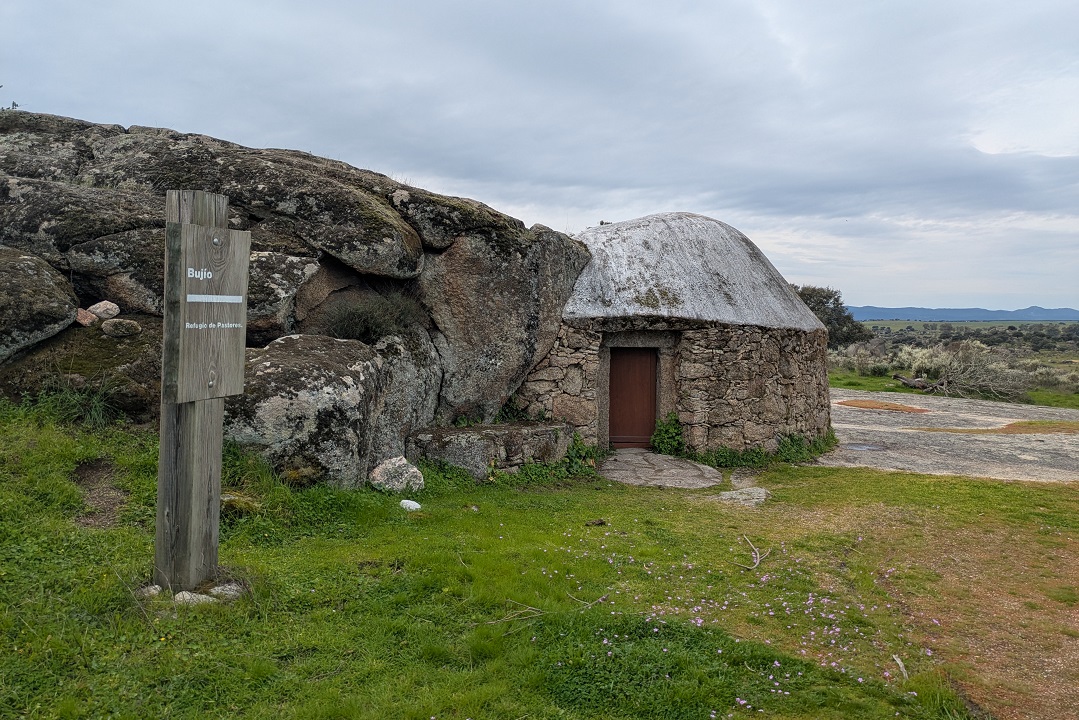
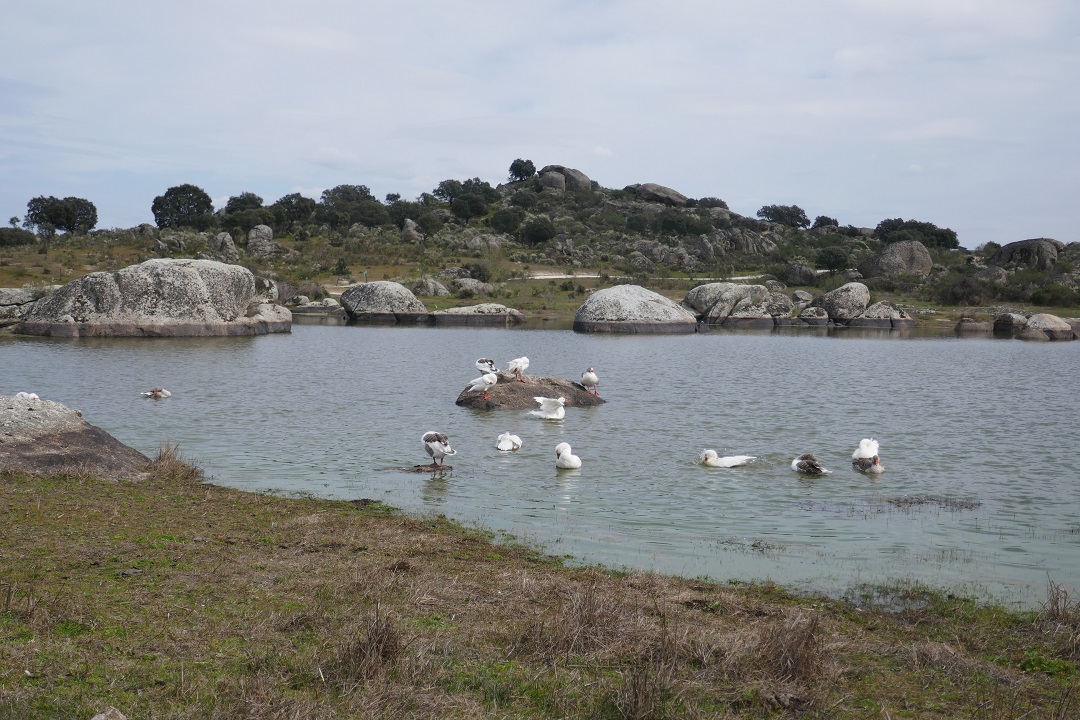
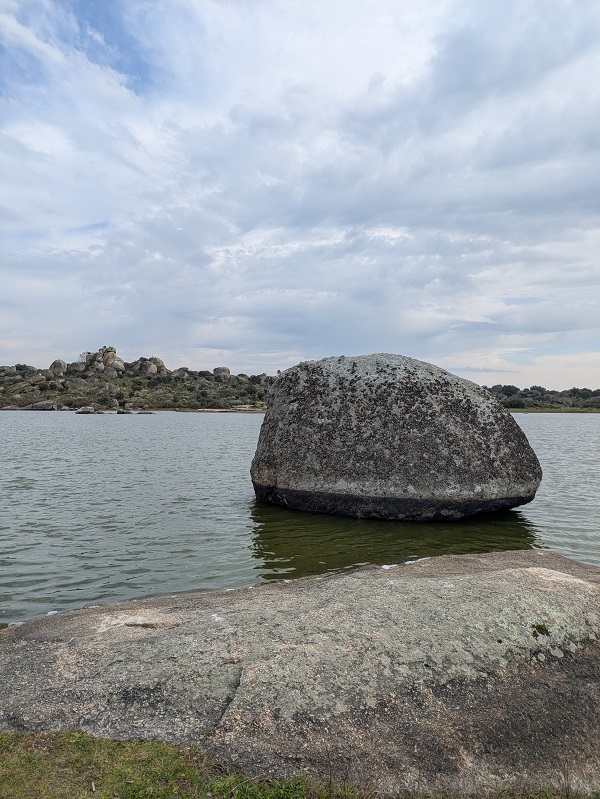
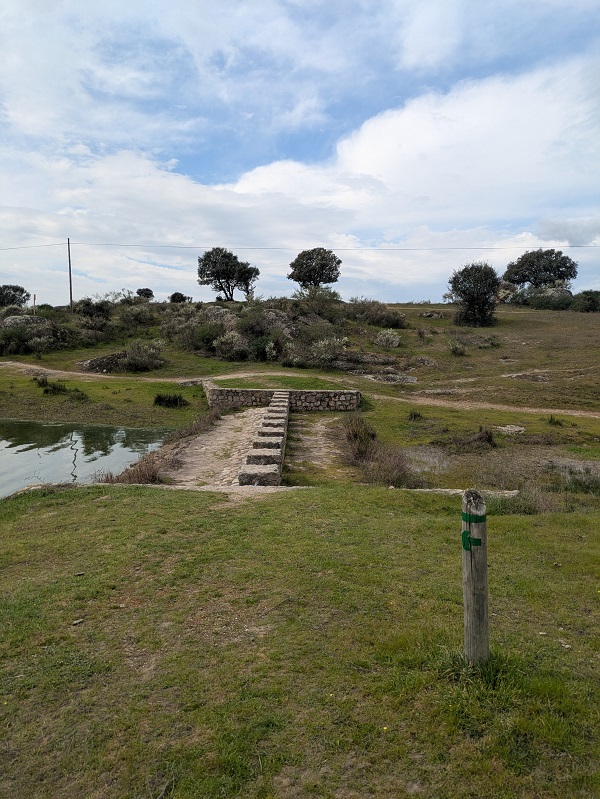
Don’t forget your binoculars. Los Barruecos is a great place for birdwatching, particularly near and around both artificial lakes.
Storks
Los Barruecos is a great place for spotting Extremadura’s flagship animal – the white stork. The local white stork colony is divided between those nesting on historical buildings within the town, and those nesting within the Los Barruecos Natural Monument protected area.
When visiting Los Barruecos, you’ll be able to see storks in many places, such as in nests above posts in the spot known as Humedal de la Cigüeña (keep your eyes peeled when driving into Los Barruecos), on the monument called ¿Por qué el juicio entre Pilatos y Jesús duró sólo dos minutos? at the Vostell Museum, on the huge granitic formations along the above-mentioned green walking route, and even on the ground.
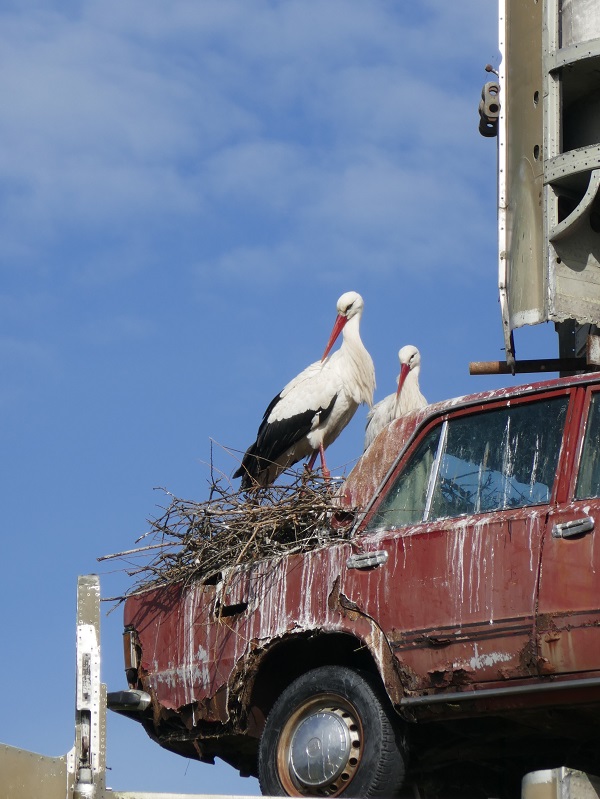
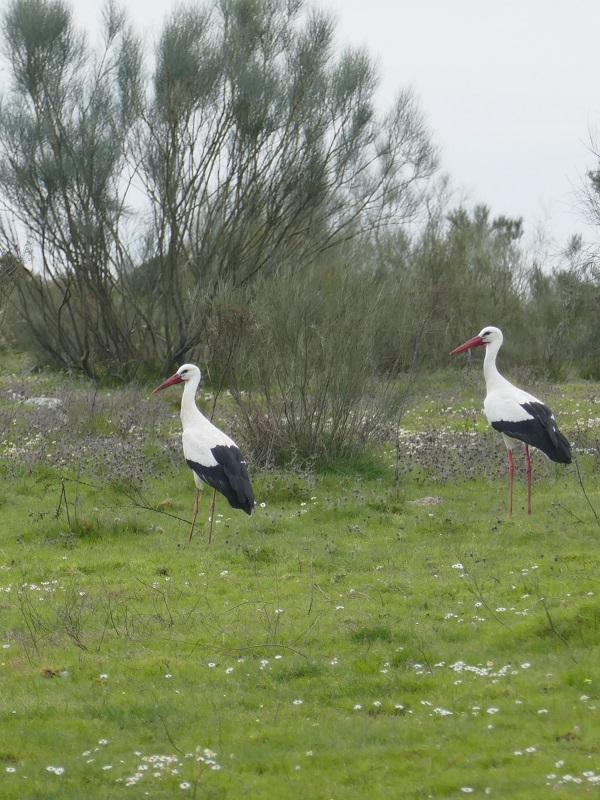
Did you know? Malpartida de Cáceres is a member of the European Stork Villages Network. It also holds the Semana de la Cigueña – a week-long event in spring featuring environmental education activities, an international photography contest and a birding-related award ceremony.
Game of Thrones filming location
Los Barruecos was chosen as one of the filming locations for Game of Thrones. More specifically, the upper lake (Barrueco de Arriba) featured in episodes four and five of the seventh season as the battleground on the Loot Train Attack.
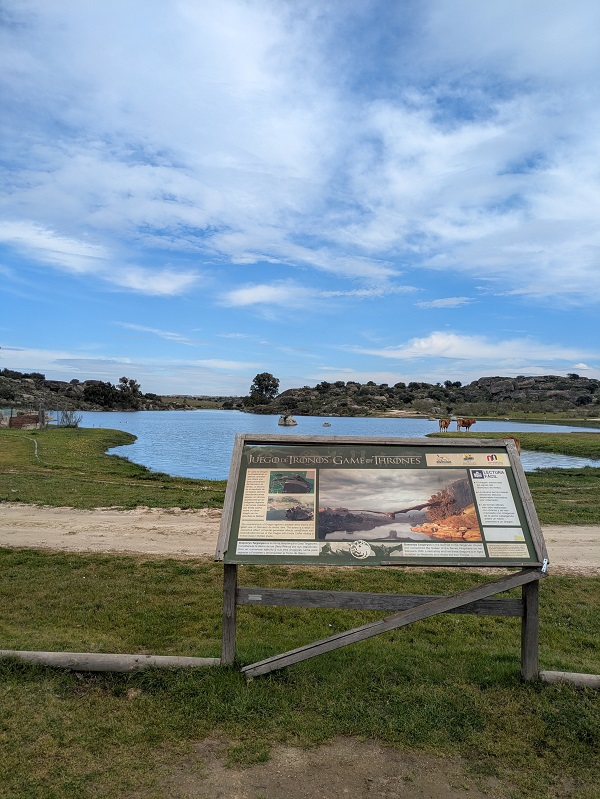
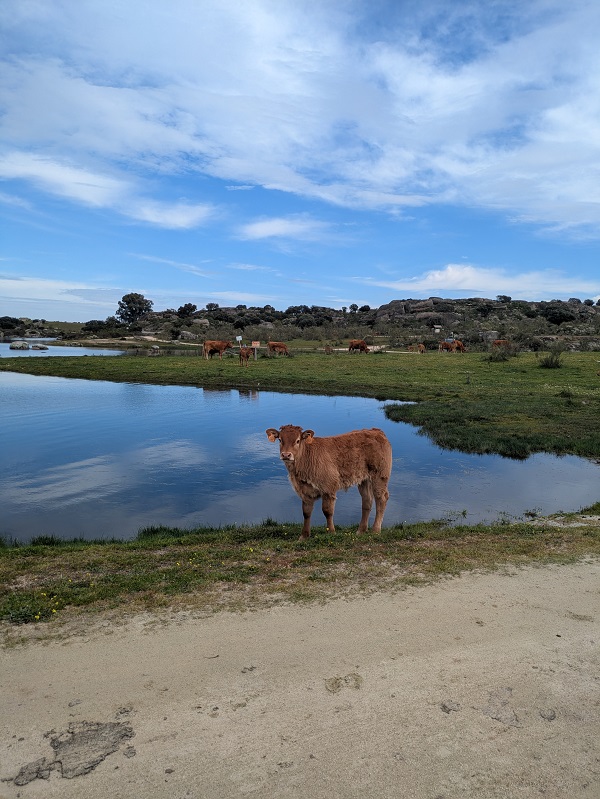
Other things to see and do in Tajo-Salor-Almonte:
- Mina Pastora, in Aliseda
This content is protected by copyright and belongs exclusively to Irene Corchado Resmella. To know exactly what this means, read the 'Copyright' section in the Website terms of use.
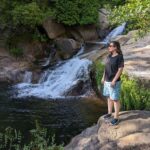
Irene Corchado Resmella
Hi! I’m Irene (/ee-REH-neh/). Long since settled in the UK, I explore my Spanish home region of Extremadura with an inquisitive mind, a sharp eye, and the duality that comes with being both a local and a visitor. Then I write about it here to help you discover this beautiful yet overlooked part of Spain. If you have any questions after reading this article, submit a comment below! Read more about me.
